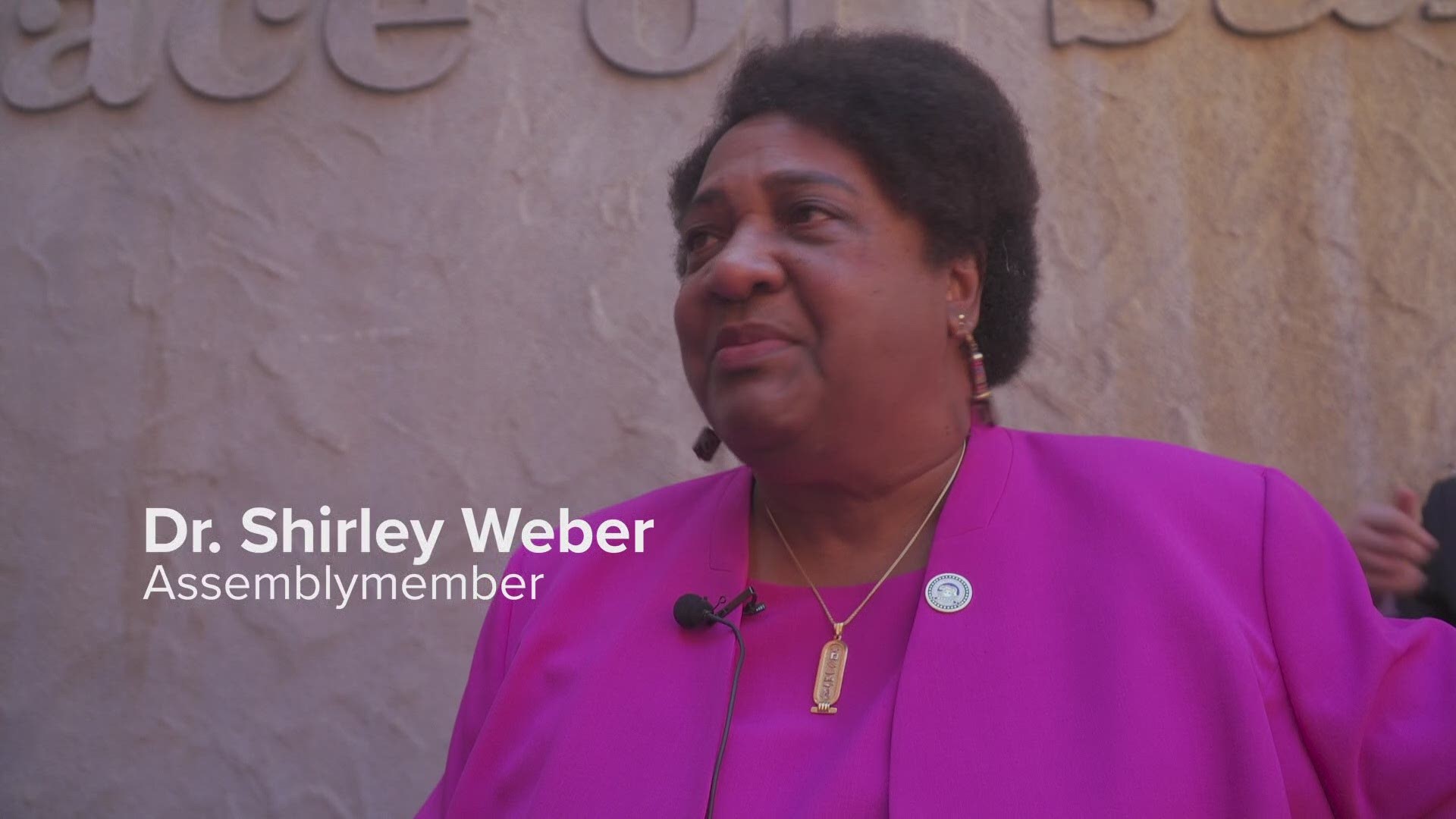SACRAMENTO, Calif. — Gov. Gavin Newsom said he’ll judge the success of California’s new law limiting police use of deadly force based on whether it leads to a “substantial reduction in the number of fatal shootings.”
“We need to see significant improvement in the number of these instances,” Newsom said Thursday in an interview for CalMatters’ Force Of Law podcast.
“Ultimately that will be the foundational judge of whether or not this was a successful effort.”
Newsom signed the new law Monday, after more than a year of emotional debate in the state Capitol that drew hundreds of people whose loved ones have been killed by police — as well as law enforcement officers who described the need to defend themselves from violent attacks. The law, which takes effect on January 1, says police can use deadly force only when “necessary” to defend against an imminent threat of death or serious injury. That’s tougher than the current standard, which says police can shoot when “reasonable.”
California’s rate of police shootings is higher than the national average, and highest among the dozen states with populations of at least 8 million. California police killed 146 people last year and 172 people the year before, according to statistics from the state Department of Justice — with blacks and Latinos making up a disproportionate share.
Newsom declined to specify by how much or how soon the new law could change those numbers.
“I don’t expect it to happen overnight and it’s going to take time to change cultures, hearts, minds,” he said, adding that it will also take time to train the state’s 80,000 officers in de-escalation techniques.
Police have been asking for more training and Newsom has obliged. The budget he signed this summer gives an additional $35 million to the state agency responsible for law enforcement training, with $20 million dedicated to teaching officers tactics for calming situations and alternatives to firing their weapons. Another bill, still awaiting final votes in the Legislature, would boost standards for basic training so that it covers de-escalation, response to mental health crises, and awareness of bias and cultural competency.
Newsom said the pitched debate over changing California’s law on deadly force — which began last year after Sacramento police killed Stephon Clark in his grandparents’ backyard when they mistook the cell phone he was holding for a gun — may already be changing the mindset of police. They began the year intensely opposed to changing the deadly force law, but eventually went neutral after lawmakers changed the bill to give courts more say in defining a “necessary” use of force.
“There’s not a law enforcement officer that’s not familiar with this, so already I think it’s having an impact,” Newsom said. “It would be nice to see that manifested in the short term. But I think realistically this is a longer term prospect.”
Hear more of Newsom’s interview in an upcoming episode of Force Of Law, a narrative podcast series by Laurel Rosenhall following California’s attempt to reduce police shootings. Subscribe here on Apple Podcasts or here on other platforms.
CalMatters.org is a nonprofit, nonpartisan media venture explaining California policies and politics.

